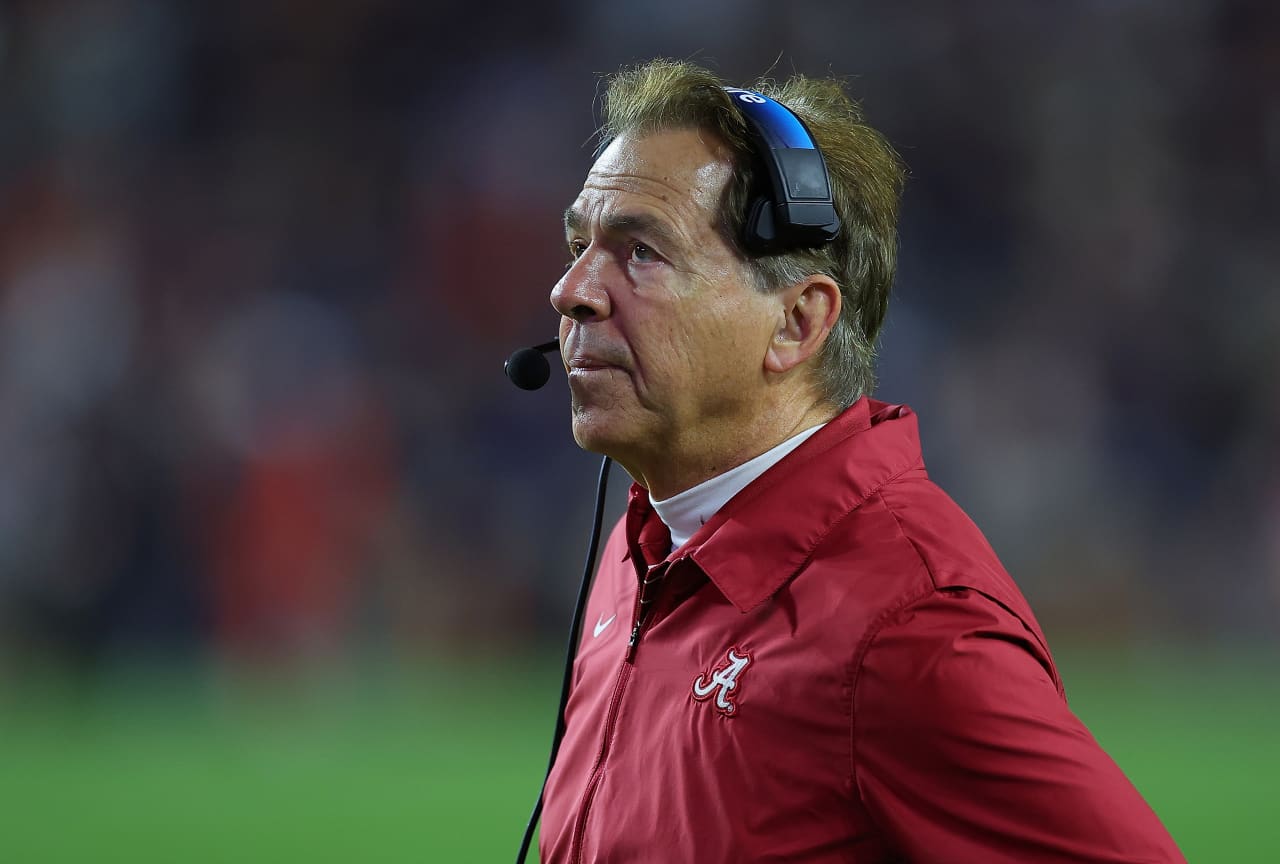Kalen DeBoer takes on Alabama. Did NIL play a role in Saban’s retirement?

University of Washington head football coach Kalen DeBoer will replace Nick Saban as Alabama’s head coach after Saban suddenly retired with the remainder of his six-year, $71.8 million contract remaining, according to ESPN. do.
Saban, 72, is walking away from a Crimson Tide program that has won the most national titles in college football history and can play for a championship trophy as it consistently ranks among the top four teams in the country.
After leading Washington to the College Football Playoff this season, DeBoer, 49, has landed one of the most coveted jobs in college football.
Shortly after Saban’s retirement announcement Wednesday, some people who know him spoke about recent changes in college sports, including players being able to utilize their names, images and likenesses, better known as NILs, and more comfortable student-athlete transfers. Rules may be behind decisions.
See also: NFL ‘decided to rip off fans’ by streaming playoff games on Peacock, congressman says.
AJ McCarron, who was the Alabama quarterback under Saban a decade ago, said the wildly successful coach was fed up with the new environment of college sports.
NFL legend and University of Colorado football coach Deion Sanders theorizes that changes in the college game have “forced out” Saban, the greatest coach of all time.
Micah Parsons, an NFL All-Pro linebacker for the Dallas Cowboys who played collegiately at Penn State in 2018-19, posted that he, too, believed the NIL played a role in Saban’s shocking retirement.
The NCAA began allowing college athletes to obtain name, image and likeness rights in 2021. At this time, student athletes finally won a decades-long debate over the fairness of not being compensated even though the games they played generated millions of dollars for their institutions. They are registered. Football and basketball were big revenue generators.
On several occasions, Saban has publicly stated that he favors compensating athletes, but he is not a fan of the current system, which rewards schools for their ability to produce NIL packages that lure the most valuable recruits.
Earlier this season, in a now-famous press conference, Saban asked, “Is this the kind of college football we want?”
See also: These 10 college athletes earn more than $1 million per year in NIL.
Saban, who has won championship trophies in a series of college football eras, including the Bowl Championship Series and the College Football Playoff system as well as this new NIL era, has some experts say the most recent changes are creating unmanageable scenarios for coaches. I think there is.
“The changing environment certainly makes things more difficult,” Michael Rueda, corporate partner at international law firm Withers and head of the U.S. sports and entertainment group, told MarketWatch. “It presents an element that wasn’t there before.”
College coaches no longer need to plan how their prospects will fit in on the field and in the classroom, or whether a school meets the NIL requirements for a particular student-athlete.
“Most coaches coach because they want to create an environment where their students can be successful both on the field and after college,” Rueda said. “With NIL and some of the subsequent developments, it became, ‘How do I facilitate bringing in more NIL dollars to my program and student-athletes?’ ”
Read more: The NCAA will determine the feasibility of a plan for the Division I tier to pay players directly.
“When you start talking to these young kids and try to recruit them, the first thing they ask is, ‘What are my NIL odds?’ ” Lisa Delpy Neirotti, professor of sports management at George Washington University, told MarketWatch. “So not only does he put forward the values that he respects as a coach; “Now he’s going to be worried about how much money he’s going to have to pay these kids on the side.”
In addition to attracting high school students to top-tier programs, lucrative NIL opportunities can also inspire players to transfer from one college to another, a move that is being facilitated by the easing of transfer disincentives, Neirotti added.
See also: Who owns Tiger Woods’ ‘TW’ logo now that he has left Nike?
Saban has publicly said his retirement isn’t about the changing landscape of college football, whether it’s the NIL or an increasingly active transfer portal, but he has reiterated that he and his fellow coaches are unhappy with the current system.
“For me, if you pick a coach, you don’t have to complain about all that,” Saban told ESPN. “You have to adapt and adapt, do the best you can under the circumstances and not complain. I think everyone is frustrated about it right now. We had the SEC conference call (on Wednesday). There were 14 coaches there. And there’s not a single person I can talk to who really understands what’s going on in college football and doesn’t think it’s a problem.”
Saban led the Crimson Tide to nine Southeastern Conference championships and a national title in 2009, 2011, 2012, 2015, 2017 and 2020. He arrived in Tuscaloosa after previously winning a national championship at Louisiana State in 2003.




